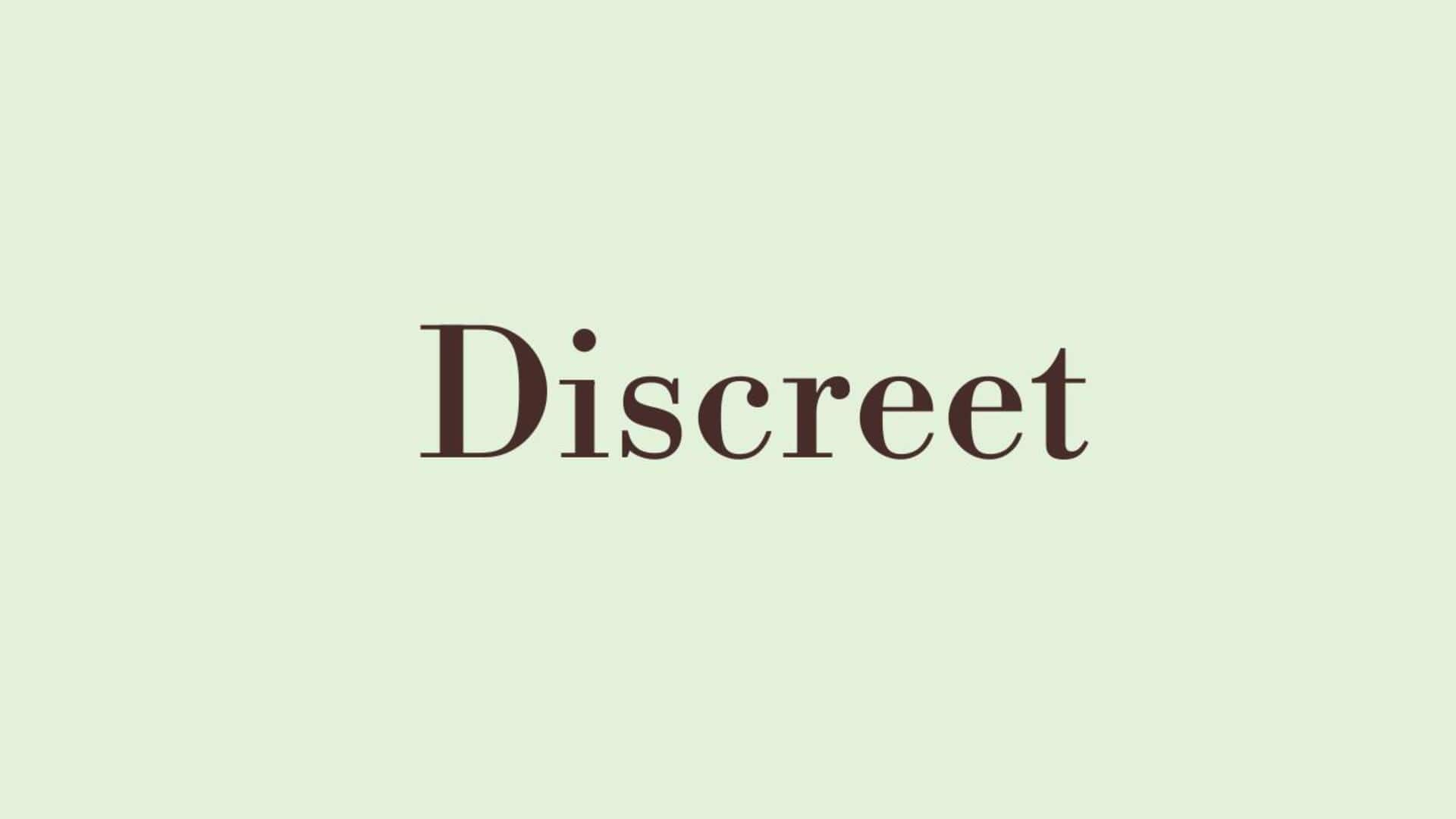
Word of the Day: Discreet
What's the story
The word "discreet" describes someone who behaves in a careful, tactful, and respectful manner, especially when handling private or sensitive matters. It means being subtle and avoiding unnecessary attention. People often value "discreet" individuals for their ability to maintain trust and handle situations with quiet confidence and wisdom.
Origin
Origin of the word
The word "discreet" comes from the Latin word discretus, meaning "separated" or "distinguished." It entered English through Old French in the 14th century and originally meant showing good judgment. Over time, its meaning evolved to include the idea of careful or prudent behavior, especially in speech or action.
Synonyms
Synonyms for 'discreet'
Synonyms for "discreet" include careful, prudent, cautious, reserved, tactful, diplomatic, subtle, and judicious. These words suggest thoughtful behavior that avoids causing offense or revealing too much. "Discreet" adds a layer of trustworthiness, suggesting the person can be relied upon to keep things private or manage delicate issues well.
Sentence
Sentence usage
Let's see how "discreet" is used in various scenarios: "She was 'discreet' about their breakup, never sharing details with others." "A 'discreet' glance passed between the two friends." "The hotel staff offered 'discreet' service to protect guests' privacy." "He made a "discreet" exit from the party without drawing attention."
Writing
Why use the word
Using "discreet" adds nuance and emotional intelligence to your writing, especially in situations involving privacy, respect, or subtle communication. It conveys thoughtfulness, maturity, and consideration for others. Ideal for describing actions that are gentle yet impactful, it helps highlight social awareness or professional decorum.